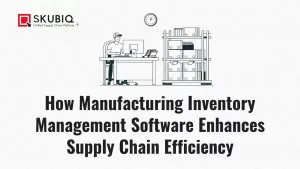In the dynamic landscape of today’s business world, where information is power, the ability to make well-informed decisions is crucial for success. As enterprises grow and transactions multiply, the volume of data generated can be overwhelming. In this scenario, data warehouse technology emerges as a beacon of efficiency, providing businesses with the tools to organize, analyze, and derive valuable insights from vast datasets. This article explores the role of data warehouse technology in enhancing decision-making processes, with a focus on its integration with warehouse tracking systems, order management systems, automated inventory tracking systems, supply chain planning, and the overall inventory control process.
Understanding Data Warehouse Technology
At its core, a data warehouse is a centralized repository that allows businesses to store, integrate, and manage large volumes of data from various sources. Unlike traditional databases, data warehouses are designed for analytical purposes, providing a platform for complex queries, reporting, and data analysis. The architecture of a data warehouse enables the processing of vast datasets, facilitating the extraction of actionable insights.
Benefits of Data Warehouse Technology
1. Streamlined Data Management
The integration of data warehouse technology into business operations streamlines data management by consolidating information from diverse sources. This unified view of data ensures consistency, accuracy, and reliability, laying the foundation for informed decision-making.
2. Enhanced Data Quality
Data accuracy is paramount in decision-making processes. Data warehouses incorporate data cleansing and validation processes, ensuring that the information used for analysis is accurate and trustworthy. This commitment to data quality is a critical factor in making reliable business decisions.
3. Improved Accessibility
With a data warehouse in place, accessing critical business information becomes efficient and user-friendly. Users can retrieve data quickly, analyze it in real-time, and generate reports tailored to their specific needs. This accessibility empowers decision-makers at all levels of the organization.
Integration with Warehouse Tracking Systems
The synergy between data warehouse technology and warehouse tracking systems is instrumental in optimizing supply chain operations. Warehouse tracking systems capture real-time data on inventory levels, movement, and storage conditions. By integrating this data with a data warehouse, businesses gain a comprehensive view of their warehouse operations.
1. Real-Time Visibility
The integration enables real-time visibility into the warehouse environment. Decision-makers can track inventory levels, monitor the movement of goods, and identify potential bottlenecks. This real-time insight allows for proactive decision-making, preventing stockouts and minimizing excess inventory.
2. Optimized Order Fulfillment
With the combined power of a data warehouse and warehouse tracking system, order management becomes more efficient. Businesses can analyze historical data to predict demand patterns, optimize stocking levels, and streamline the order fulfillment process. This results in improved customer satisfaction and operational efficiency.
Leveraging Data Warehouse Technology in Order Management Systems
An efficient order management system (OMS) is vital for businesses dealing with a high volume of transactions. Integrating data warehouse technology with order management systems enhances the efficiency and accuracy of order processing.
1. Historical Order Analysis
By storing historical order data in a data warehouse, businesses can analyze trends and patterns over time. This analysis provides valuable insights into customer behavior, enabling more accurate demand forecasting and inventory planning.
2. Performance Monitoring
The integration allows for real-time monitoring of order processing performance. Decision-makers can identify bottlenecks, track order fulfillment times, and implement corrective measures swiftly. This level of visibility ensures that the order management process remains agile and responsive to changing demands.
Automated Inventory Tracking Systems and Data Warehousing
The marriage of automated inventory tracking systems with data warehouse technology transforms the way businesses manage their inventory. Automated systems provide real-time updates on stock levels, and when integrated with a data warehouse, this information becomes a strategic asset.
1. Efficient Stock Replenishment
Automated inventory tracking systems feed real-time data into the data warehouse, allowing businesses to optimize stock replenishment processes. Decision-makers can set up automated alerts for low inventory levels, triggering timely replenishment orders and preventing stockouts.
2. Demand Forecasting
The historical data stored in the data warehouse becomes invaluable for demand forecasting. Businesses can identify seasonal trends, understand product preferences, and adjust inventory levels accordingly. This proactive approach minimizes excess inventory costs while ensuring products are available when customers demand them.
Enhancing Supply Chain Planning with Data Warehousing
In the realm of supply chain management, effective planning is the key to success. Supply chain planning involves coordinating and optimizing the flow of goods, information, and finances. The integration of data warehouse technology into supply chain planning processes brings about significant improvements.
1. Data-Driven Decision-Making
Data-driven decision-making is the hallmark of an efficient supply chain. A data warehouse aggregates data from various supply chain sources, providing decision-makers with a comprehensive view of the entire process. This holistic perspective enables better-informed decisions, from procurement to distribution.
2. Performance Analytics
Supply chain performance can be analyzed in detail through the lens of a data warehouse. Key performance indicators (KPIs) related to lead times, transportation costs, and supplier performance can be monitored and analyzed over time. This data-driven approach allows for continuous improvement and optimization of the supply chain.
Streamlining the Inventory Control Process
The inventory control process is central to managing the balance between supply and demand. Integrating data warehouse technology into this process enhances control and visibility, leading to more effective decision-making.
1. Dynamic Inventory Management
A data warehouse enables dynamic inventory management by providing real-time insights into stock levels, order status, and sales trends. Businesses can adjust inventory strategies on the fly, responding to market changes and ensuring that stock levels align with demand.
2. Risk Mitigation
By analyzing historical data and trends, businesses can identify potential risks in the inventory control process. This foresight allows decision-makers to implement risk mitigation strategies, such as diversifying suppliers or implementing safety stock measures, to ensure continuity in the supply chain.
Conclusion
In conclusion, the integration of data warehouse technology into business operations is a game-changer for decision-making processes. Whether it’s optimizing warehouse operations, streamlining order management, automating inventory tracking, enhancing supply chain planning, or refining the inventory control process, the benefits are profound. Businesses that leverage the power of data warehouse technology gain a competitive edge by making informed decisions based on accurate, real-time data. As the business landscape continues to evolve, embracing this technology becomes not just an advantage but a necessity for sustained success.



